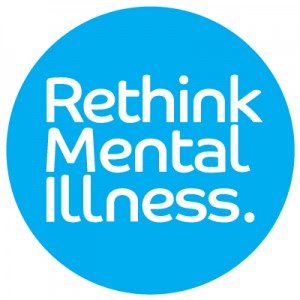Rethought Mental Illness
I can hardly believe that today is my second last day. On one hand, the last four weeks have flown by incredibly fast, and on the other hand, it feels like I’ve always worked here.
This last week has certainly been eventful! My survey (which was originally meant to go online last Thursday, then Friday, Monday, Tuesday, Wednesday) is now being promoted through Facebook and Twitter! As you can see, it was being pushed to the next day a number of times – that is because Rethink tries to limit its activity on social media, especially Facebook, so that each individual post gets enough attention. So for almost a week, it seemed as though there was nothing to be done about the survey – until an hour before it did actually go out, I got feedback from the Associate Director and changed a lot of the wording. Additionally, technology failed me (I am even worse at it than I thought, apparently), and the link we passed on to other charities was broken – and ended up on Twitter for about an hour.
So, as you can see – the last few hours before getting the survey online were actually quite hectic. You can imagine my reaction when, after 3.5 weeks of re-phrasing and re-ordering, I saw my survey being promoted online! For the rest of the afternoon, I was sitting in front of the screen, watching the numbers go up – by the end of the day, I had 300 responses, and two other major charities haven’t even started promoting it yet! With their help, I am optimistic that after 3 weeks we will have 1000+ responses.
I think at this point it is only appropriate that I advertise it! If you or somebody you care for has accessed mental health care from their GP, please tell us what needs to change here: https://www.surveymonkey.com/s/538RYW2 !
I am going to analyse these results mid-August, when – unfortunately – I won’t be working at the Rethink office anymore. The findings are going to (hopefully) inform them about specific changes people would find useful, and Rethink can base their campaigns around those. So, if everything goes as planned, my work and your potential contribution will have a long term effect, and can direct help direct mental health care in a positive direction.
I will leave here tomorrow with a feeling of fulfilment. I learned and did more than I could have hoped for during my time at Rethink. The last four weeks have not only informed me about everything that is going wrong in mental health care, but also inspired me to work on that. I have come across so many people who have an interest in mental health – colleagues at Rethink, campaigners with lived experience, doctors, carers, and more – and it is fantastic to see how passionate people are about this topic, once they overcome the stigma that is, unfortunately, still attached to it.
I am, now even more than four weeks ago, considering psychiatry as a field I would like to work in; in this sense it might have a major effect on me beyond the scope of the internship. I cannot recommend Charity Insights strongly enough to everyone; it gives you the opportunity not only to choose a field that you are passionate about, but also to work for a charity, which is completely different (and of course much better) than working for a for-profit company!
Thank you for accompanying me in this, and I hope my blog inspired you to rethink mental illness.

